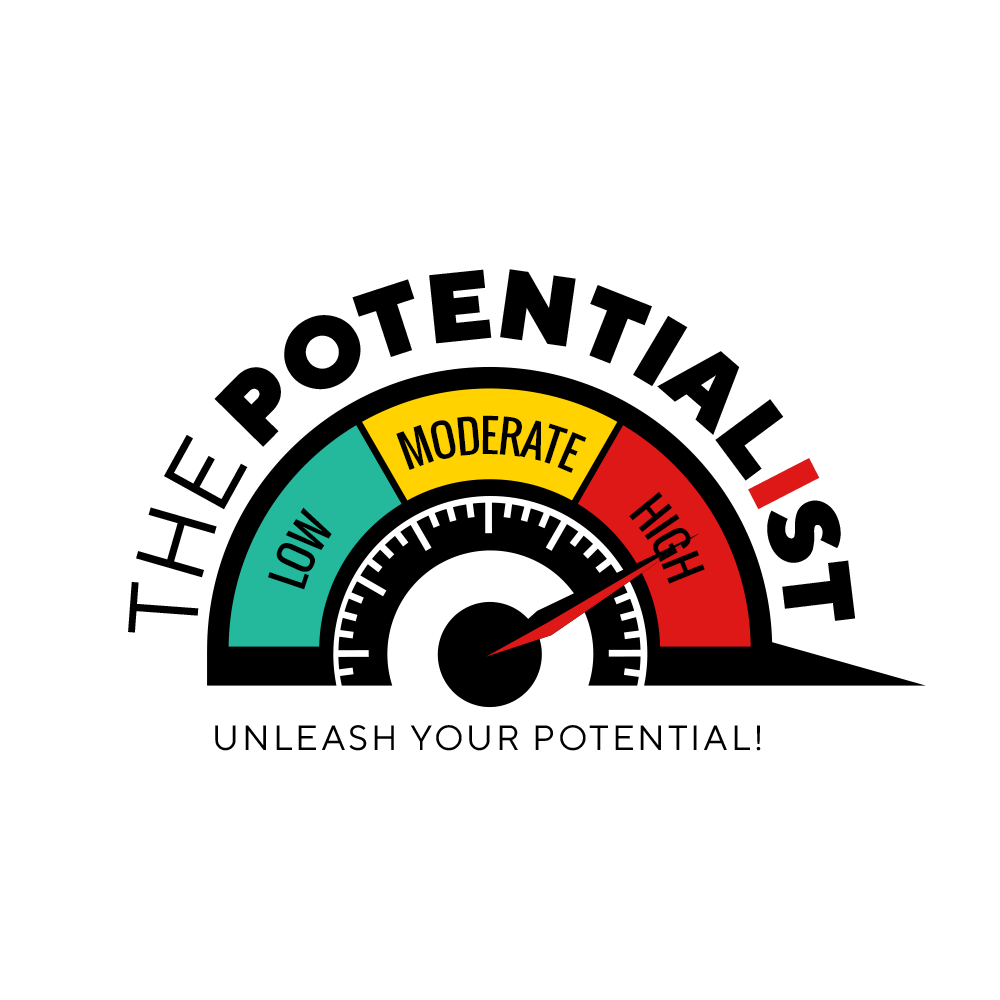BLOG | THE POTENTIALIST
BLOG | THE POTENTIALIST
BLOG | THE POTENTIALIST

This is the biggest mistake businesses make
About 50% of businesses fail within the first 5 years... but why is that?? Small businesses are the backbone of communities and economies worldwide. They play a pivotal role in driving growth and shaping the landscape of industries. Most entrepreneurs are passionate and determined, so why do most fail?
The most frequent answer I hear is "They lack a plan." I would argue that just the mere starting a of business is a plan. The biggest mistake is not having a good, strategic plan.
One of the most critical aspects of running a successful small business is having a comprehensive plan that encompasses both short-term and long-term objectives. A well-defined business plan serves as a roadmap, guiding the company's direction and establishing strategic goals across various timeframes: short, medium, and long. Short-term plans, typically spanning one year, focus on immediate actions and tactics to achieve specific objectives within that period. Mid-term plans, usually covering three years, outline the company's growth trajectory and establish milestones to measure progress. Long-term plans, extending over five years or more, envision the company's future and define its overarching visions and aspirations.
Breaking down the overall business plan into specific functional areas, such as marketing, accounting, and product/service development, ensures a holistic approach to business growth. Marketing strategies should effectively communicate the company's value proposition and reach its target audience. This involves understanding customer needs and preferences, developing targeted messaging, and utilizing appropriate marketing channels. At first, the marketing strategies should be very strategic, keeping expenses to a minimum. Creativity can be more effective than spending money in the early stages.
Accounting strategies, with a focus on profitability, are essential for ensuring the long-term financial stability of the business. This includes maintaining accurate records, tracking expenses, managing cash flow, and making informed financial decisions. By prioritizing profit, businesses can reinvest in growth initiatives, strengthen their financial position, and attract potential investors.
Product/service strategies should focus on developing and delivering offerings that meet customer needs and align with the company's overall vision. This involves conducting market research, identifying market gaps, and creating products or services that provide unique value to customers. By understanding the market landscape, businesses can differentiate themselves from competitors and attract a loyal customer base.
Business is simple, but not always easy. We must take the time to properly create a plan and strategy to implement that strategy. Marketing brings in clients, accounting helps you stay profitable and make pivots, and product/service development creates more of a connection with those clients. Having a well-crafted plan will minimize risk and help in execution.

This is the biggest mistake businesses make
About 50% of businesses fail within the first 5 years... but why is that?? Small businesses are the backbone of communities and economies worldwide. They play a pivotal role in driving growth and shaping the landscape of industries. Most entrepreneurs are passionate and determined, so why do most fail?
The most frequent answer I hear is "They lack a plan." I would argue that just the mere starting a of business is a plan. The biggest mistake is not having a good, strategic plan.
One of the most critical aspects of running a successful small business is having a comprehensive plan that encompasses both short-term and long-term objectives. A well-defined business plan serves as a roadmap, guiding the company's direction and establishing strategic goals across various timeframes: short, medium, and long. Short-term plans, typically spanning one year, focus on immediate actions and tactics to achieve specific objectives within that period. Mid-term plans, usually covering three years, outline the company's growth trajectory and establish milestones to measure progress. Long-term plans, extending over five years or more, envision the company's future and define its overarching visions and aspirations.
Breaking down the overall business plan into specific functional areas, such as marketing, accounting, and product/service development, ensures a holistic approach to business growth. Marketing strategies should effectively communicate the company's value proposition and reach its target audience. This involves understanding customer needs and preferences, developing targeted messaging, and utilizing appropriate marketing channels. At first, the marketing strategies should be very strategic, keeping expenses to a minimum. Creativity can be more effective than spending money in the early stages.
Accounting strategies, with a focus on profitability, are essential for ensuring the long-term financial stability of the business. This includes maintaining accurate records, tracking expenses, managing cash flow, and making informed financial decisions. By prioritizing profit, businesses can reinvest in growth initiatives, strengthen their financial position, and attract potential investors.
Product/service strategies should focus on developing and delivering offerings that meet customer needs and align with the company's overall vision. This involves conducting market research, identifying market gaps, and creating products or services that provide unique value to customers. By understanding the market landscape, businesses can differentiate themselves from competitors and attract a loyal customer base.
Business is simple, but not always easy. We must take the time to properly create a plan and strategy to implement that strategy. Marketing brings in clients, accounting helps you stay profitable and make pivots, and product/service development creates more of a connection with those clients. Having a well-crafted plan will minimize risk and help in execution.

This is the biggest mistake businesses make
About 50% of businesses fail within the first 5 years... but why is that?? Small businesses are the backbone of communities and economies worldwide. They play a pivotal role in driving growth and shaping the landscape of industries. Most entrepreneurs are passionate and determined, so why do most fail?
The most frequent answer I hear is "They lack a plan." I would argue that just the mere starting a of business is a plan. The biggest mistake is not having a good, strategic plan.
One of the most critical aspects of running a successful small business is having a comprehensive plan that encompasses both short-term and long-term objectives. A well-defined business plan serves as a roadmap, guiding the company's direction and establishing strategic goals across various timeframes: short, medium, and long. Short-term plans, typically spanning one year, focus on immediate actions and tactics to achieve specific objectives within that period. Mid-term plans, usually covering three years, outline the company's growth trajectory and establish milestones to measure progress. Long-term plans, extending over five years or more, envision the company's future and define its overarching visions and aspirations.
Breaking down the overall business plan into specific functional areas, such as marketing, accounting, and product/service development, ensures a holistic approach to business growth. Marketing strategies should effectively communicate the company's value proposition and reach its target audience. This involves understanding customer needs and preferences, developing targeted messaging, and utilizing appropriate marketing channels. At first, the marketing strategies should be very strategic, keeping expenses to a minimum. Creativity can be more effective than spending money in the early stages.
Accounting strategies, with a focus on profitability, are essential for ensuring the long-term financial stability of the business. This includes maintaining accurate records, tracking expenses, managing cash flow, and making informed financial decisions. By prioritizing profit, businesses can reinvest in growth initiatives, strengthen their financial position, and attract potential investors.
Product/service strategies should focus on developing and delivering offerings that meet customer needs and align with the company's overall vision. This involves conducting market research, identifying market gaps, and creating products or services that provide unique value to customers. By understanding the market landscape, businesses can differentiate themselves from competitors and attract a loyal customer base.
Business is simple, but not always easy. We must take the time to properly create a plan and strategy to implement that strategy. Marketing brings in clients, accounting helps you stay profitable and make pivots, and product/service development creates more of a connection with those clients. Having a well-crafted plan will minimize risk and help in execution.
Are you ready to break through limiting beliefs and unlock your full potential?
Tap here to learn more
Stay connected with our BLOG by subscribing to our
MINDSET MONDAY EMAILS!
Join our mailing list to receive the latest blogs and updates.
Don't worry, your information will not be shared.


